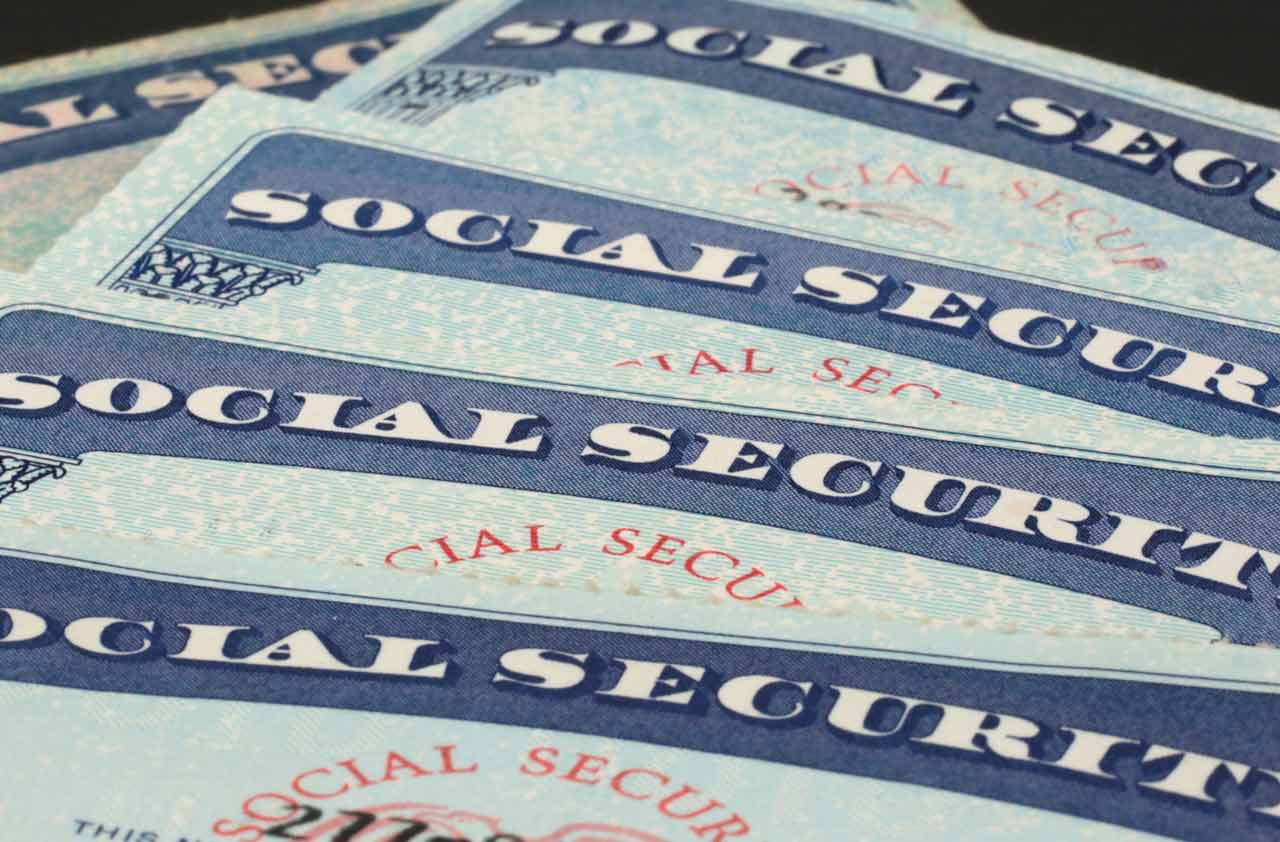Claim Social Security at the Right Time
Retirees are forfeiting an average of $111,000 per household by filing for benefits early.


Profit and prosper with the best of Kiplinger's advice on investing, taxes, retirement, personal finance and much more. Delivered daily. Enter your email in the box and click Sign Me Up.
You are now subscribed
Your newsletter sign-up was successful
Want to add more newsletters?

Delivered daily
Kiplinger Today
Profit and prosper with the best of Kiplinger's advice on investing, taxes, retirement, personal finance and much more delivered daily. Smart money moves start here.

Sent five days a week
Kiplinger A Step Ahead
Get practical help to make better financial decisions in your everyday life, from spending to savings on top deals.

Delivered daily
Kiplinger Closing Bell
Get today's biggest financial and investing headlines delivered to your inbox every day the U.S. stock market is open.

Sent twice a week
Kiplinger Adviser Intel
Financial pros across the country share best practices and fresh tactics to preserve and grow your wealth.

Delivered weekly
Kiplinger Tax Tips
Trim your federal and state tax bills with practical tax-planning and tax-cutting strategies.

Sent twice a week
Kiplinger Retirement Tips
Your twice-a-week guide to planning and enjoying a financially secure and richly rewarding retirement

Sent bimonthly.
Kiplinger Adviser Angle
Insights for advisers, wealth managers and other financial professionals.

Sent twice a week
Kiplinger Investing Weekly
Your twice-a-week roundup of promising stocks, funds, companies and industries you should consider, ones you should avoid, and why.

Sent weekly for six weeks
Kiplinger Invest for Retirement
Your step-by-step six-part series on how to invest for retirement, from devising a successful strategy to exactly which investments to choose.
One of the biggest financial decisions you make on the road to retirement is when to claim Social Security benefits. You can take benefits as early as age 62, but that means your checks will be up to 30% less than if you wait until full retirement age (which is 66½ for today’s 62-year-olds). Or, for every year you delay Social Security beyond your full retirement age, your benefit grows by 8% until age 70.
That’s a lot of leeway—and a lot of room to make a decision that can trim benefits over a lifetime. In fact, according to a new study, today’s retirees have rarely made the right call, with only 4% taking Social Security at the financially optimal time.
Put another way: Collectively, retirees stand to lose out on $3.4 trillion in income throughout their retirement—or about $111,000 per household. Almost all of that income is being forfeited because retirees are claiming benefits too early, concluded a study by United Income, an online investment management company. (Results were based on data from roughly 2,000 retiree households, including the age they claimed benefits, their assets, gender, health and more.)
From just $107.88 $24.99 for Kiplinger Personal Finance
Become a smarter, better informed investor. Subscribe from just $107.88 $24.99, plus get up to 4 Special Issues

Sign up for Kiplinger’s Free Newsletters
Profit and prosper with the best of expert advice on investing, taxes, retirement, personal finance and more - straight to your e-mail.
Profit and prosper with the best of expert advice - straight to your e-mail.
What’s best for you? There is no single optimal time to claim benefits for everyone. If you are in poor health and unlikely to have, say, two or three decades in retirement, claiming early may be best. Or perhaps you were forced into early retirement by a layoff and had no other choice but to claim early. But “for the vast majority of people, delaying until 70 is best,” says Jason Fichtner, an author of the study and former chief economist at the Social Security Administration.
Given the dollars at stake, why do most retirees claim Social Security by age 63? “They hear the words ‘early eligibility age of 62,’ and they think that’s the first day they’re eligible without understanding that it’s a reduced monthly benefit for life,” says Fichtner.
He wants to change that mind-set. One way to do that, he says, is to revise how the SSA describes claiming. Instead of labeling 62 the “early eligibility age,” the agency should name it the “minimum benefit age,” while calling 70 the “maximum benefit age,” he says. “What I want people to start thinking about is how they can minimize the risk of running out of money in retirement, especially given that longevity is increasing for so many people.”
Kiplinger generally recommends that retirees wait until age 70 to claim benefits, if health and finances permit. But we often get pushback from readers, who argue that benefits should be taken early in case Congress cuts them in the future to shore up the program. Proposals to change Social Security generally exclude current retirees and workers 10 to 15 years away from retirement. And even if Congress does nothing to fix the program’s solvency, retirees will receive about 80% of promised benefits—another reason to wait for a bigger payout, says Fichtner.
Others say they would be better off taking the money early and investing it. But Fichtner says investors would have to take on more risk to beat the benefit boost that retirees get by delaying Social Security. “The odds are you would have to be fully in equities and hope the market is good,” he says.
James Bayard, a certified financial planner in Baton Rouge, La., hears these arguments from clients, too. They are often persuaded to delay benefits once Bayard runs the numbers.
He tells them how their benefit can grow each year they delay, and that future cost-of-living adjustments will be based on that bigger benefit. Once some spouses learn they will have only one Social Security check—the larger of the two—when one of them dies, they delay claiming. And when confronted with longevity statistics showing they may live longer than anticipated, Bayard says, “the vast majority of clients will say, ‘Okay, let’s play it safe.’ ”
Profit and prosper with the best of Kiplinger's advice on investing, taxes, retirement, personal finance and much more. Delivered daily. Enter your email in the box and click Sign Me Up.

-
 Quiz: Do You Know How to Avoid the "Medigap Trap?"
Quiz: Do You Know How to Avoid the "Medigap Trap?"Quiz Test your basic knowledge of the "Medigap Trap" in our quick quiz.
-
 5 Top Tax-Efficient Mutual Funds for Smarter Investing
5 Top Tax-Efficient Mutual Funds for Smarter InvestingMutual funds are many things, but "tax-friendly" usually isn't one of them. These are the exceptions.
-
 AI Sparks Existential Crisis for Software Stocks
AI Sparks Existential Crisis for Software StocksThe Kiplinger Letter Fears that SaaS subscription software could be rendered obsolete by artificial intelligence make investors jittery.
-
 3 Retirement Changes to Watch in 2026: Tax Edition
3 Retirement Changes to Watch in 2026: Tax EditionRetirement Taxes Between the Social Security "senior bonus" phaseout and changes to Roth tax rules, your 2026 retirement plan may need an update. Here's what to know.
-
 States That Tax Social Security Benefits in 2026
States That Tax Social Security Benefits in 2026Retirement Tax Not all retirees who live in states that tax Social Security benefits have to pay state income taxes. Will your benefits be taxed?
-
 Retirees in These 7 States Could Pay Less Property Taxes Next Year
Retirees in These 7 States Could Pay Less Property Taxes Next YearState Taxes Retirement property tax bills could be up to 65% cheaper for some older adults in 2026. Do you qualify?
-
 6 Tax Reasons to Convert Your IRA to a Roth (and When You Shouldn't)
6 Tax Reasons to Convert Your IRA to a Roth (and When You Shouldn't)Retirement Taxes Here’s how converting your traditional retirement account to a Roth IRA can boost your nest egg — but avoid these costly scenarios.
-
 10 Retirement Tax Plan Moves to Make Before December 31
10 Retirement Tax Plan Moves to Make Before December 31Retirement Taxes Proactively reviewing your health coverage, RMDs and IRAs can lower retirement taxes in 2025 and 2026. Here’s how.
-
 The Rubber Duck Rule of Retirement Tax Planning
The Rubber Duck Rule of Retirement Tax PlanningRetirement Taxes How can you identify gaps and hidden assumptions in your tax plan for retirement? The solution may be stranger than you think.
-
 The Most Tax-Friendly State for Retirement in 2025: Here It Is
The Most Tax-Friendly State for Retirement in 2025: Here It IsRetirement Tax How do you retire ‘tax-free’? This state doesn’t tax retirement income, has a low median property tax bill, and even offers savings on gas. Are you ready for a move?
-
 ‘I Play Pickleball in Retirement.’ Is It HSA-Eligible?
‘I Play Pickleball in Retirement.’ Is It HSA-Eligible?Retirement Tax Staying active after you retire may be easier with these HSA expenses. But there’s a big catch.